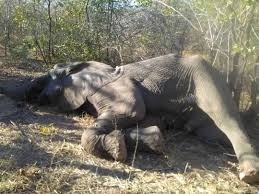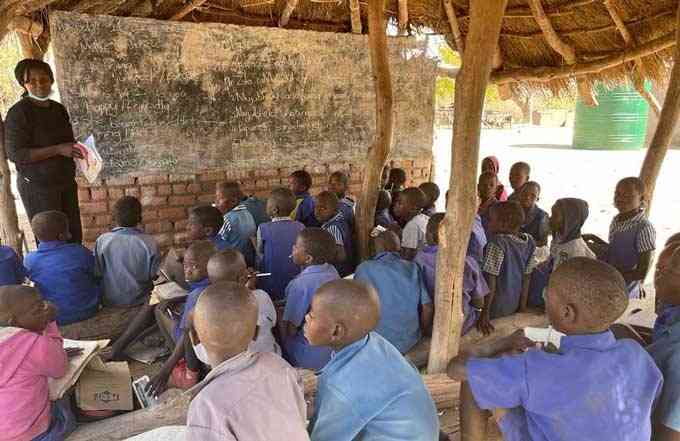
As night falls in Matetsi, Matabeleland North province, farmers abandon sleep to protect their livelihoods.
The distant trumpeting of elephants grows louder, signalling another raid on their crops and water sources.
Armed with drums and whips, Vulindlela Mhlanga and his neighbours spring into action, doing their best to drive away the hungry giants in search of food and water.
“They come every night now,” says Mhlanga, a farmer. “We fight them off, but they keep coming back.”
Wildlife intrusion is not new to this rural farming community, situated near Hwange National Park. But climate change has magnified the conflict, as prolonged drought drives animals and humans to compete for the same dwindling resources.
“This year, it’s not just the crops the elephants want. They’re after our waterholes and even raid our gardens. We’re fighting for survival against the same animals we’ve lived alongside for generations.”
Mhlanga, who also serves as a local councillor
With traditional farming now nearly impossible due to erratic rainfall, many households in Matetsi have turned to irrigation in hopes of growing cash crops. However, the success of this strategy is tenuous. As boreholes run dry, the community’s ability to irrigate has diminished, leaving them with meagre yields.
- In Full: eighteenth post-cabinet press briefing June 28, 2022
- Minister bemoans shortage of schools
- BCC joins Green Cities initiative
- Drunkard kills church pastor
Keep Reading
“Since time immemorial we have been relying on farming for our livelihoods and here in Matetsi we have good yields. However, the changing weather patterns have made our lives difficult.”
“We are food insecure as a result of these recurrent droughts,” says Misheck Mlandu, a farmer who was one of the first settlers in the area before it was designated as a resettlement by the central government.
Beyond elephants, other animals also pose a growing threat. In nearby Sikhabelo and Masuwe, lion and hyena attacks have become frequent, with 64 livestock already lost this year.
“The past seasons have been difficult because the advent of climate change has increased human-wildlife conflict. Matetsi was once the most productive ward in terms of agriculture yields in the whole district, but that has changed as elephants raid the little crops we manage to salvage as a result of the droughts,” Mlandu adds.
Farmers have tried to adapt by selling off older cattle feeding the rest with garden scraps, and relying on stock feed to maintain what’s left of their livestock. But these measures feel like stopgaps, with little long-term security.
“We have engaged ZimParks, but as a community, we’ve also devised ways to chase away problem animals, like using chili guns or planting trees that elephants avoid,” Mlandu says.
Farmers like Mlandu argue that while they possess good land suited for irrigation, the efforts are still undermined by frequent raids from elephants and baboons. He, along with others, has called for more sustainable measures to protect their livelihoods, including the erection of a perimeter fence to deter wildlife encroachment.
“We risk our lives guarding fields at night from elephants,” says Selia Nkomo, a farmer and beneficiary of the government’s resettlement programme. She urged authorities to do more to protect vulnerable communities and provide economic opportunities through community projects.
Nkomo remains hopeful that harmony between people and wildlife can be achieved.
“There’s something that can be done. Inputs should be delivered early so we can plant as soon as it’s clear to do so,” she adds.
As the effects of climate change deepen, human-wildlife conflict in Matetsi is becoming a full-blown crisis, exposing broader gaps in the country’s rural development strategy. While wildlife conservation continues to draw attention, the needs of communities on the frontlines of these conflicts remain largely neglected.
“We’re used to adapting,” Mhlanga says. “But we need more than drums to protect us from these elephants; we need solutions that protect both the people and the animals.”
—CITIZEN BULLETIN










